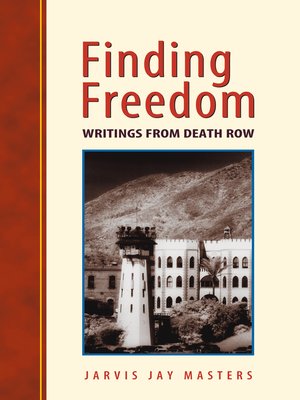
Sign up to save your library
With an OverDrive account, you can save your favorite libraries for at-a-glance information about availability. Find out more about OverDrive accounts.
Find this title in Libby, the library reading app by OverDrive.



Search for a digital library with this title
Title found at these libraries:
| Library Name | Distance |
|---|---|
| Loading... |
Finding Freedom is a deeply moving, life-affirming memoir written from the netherworld of San Quentin's Death Row. Offering stories that are sometimes sad, funny, poignant, revelatory, frightening, soul-stirring, painful, and uplifting, Jarvis Masters traces his remarkable spiritual growth in an environment where despair and death are constant companions. His book is a testament to the tenacity of the human spirit and the talent of a fine writer.
Masters' tales are a must-read pass to San Quentin when it was a Level IV (of four criminal/felony levels) prison and the inmates ran the blocks. His book is a word album of people and incidents on the yards, on the tiers and in the cells as races and cultures collide in a setting of despair and boredom. In one of his most powerful chapters, "Sanctuary," Masters enters the upper yard on his first day, facing down the stairs of the established cons as they inspect the "fish"; then the door slams on his 5 x 9' cell that will be his home for the rest of his life.
The recidivists, the young parole violators who cycle through San Quentin on 90 day plus terms, generally for drug use, with little hope for treatment, jobs or housing on the outside, are the antagonists in many of his stories. And this brings us to the present. The California prison system and San Quentin are still largely populated by young parole violators, incarcerated for drug convictions or dry outs. These youngsters, unaware, ignorant or plainly apathetic about informal prison rules, seek to achieve the "OG" (Old Gangster) status of long time inmates through predatory violence. Masters writes of his frustrating attempts to cope with them at a time that Level IV inmates all mingled together. San Quentin is now a Level II prison, confining a gentler, generally nonviolent person within its massive perimeter, and Masters now is a practicing Buddhist, a transformation remarkably documented in the book's timeline
"Three Strikes" laws and the huge campaign contributions of the CCPOA, the California prison guards' union, have lead to unparalleled growth in California's prison population with Lifers (2nd degree murder or kidnapping crimes) eligible for parole and violators routinely jammed together in every facility. California's Level IV violent cons are housed in Pelican Bay and other specially designated Security Housing Units (SHU), yet Masters' Death Row for men remains at San Quentin. And the timelessness of Masters' stories is reflected by the fact that Lifers still have the respect of almost all groups in the prison, while the California Governor fosters despair and hopelessness with an anti-parole stance. This book is an electrifying read if you have never been incarcerated. You can share Masters' gradual transformation from a mind-your-own-business, somewhat antisocial individual, to a compassionate prosocial inmate.







